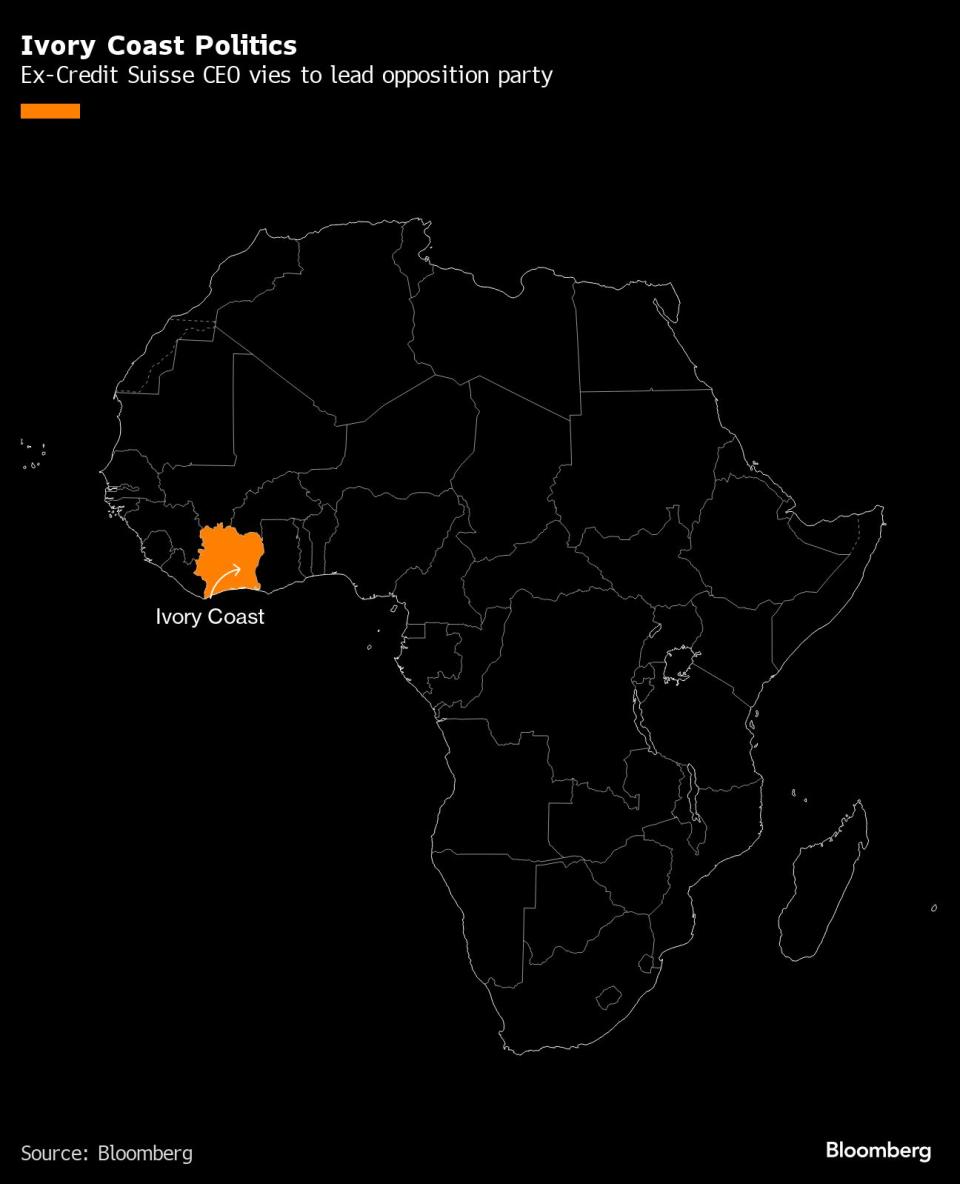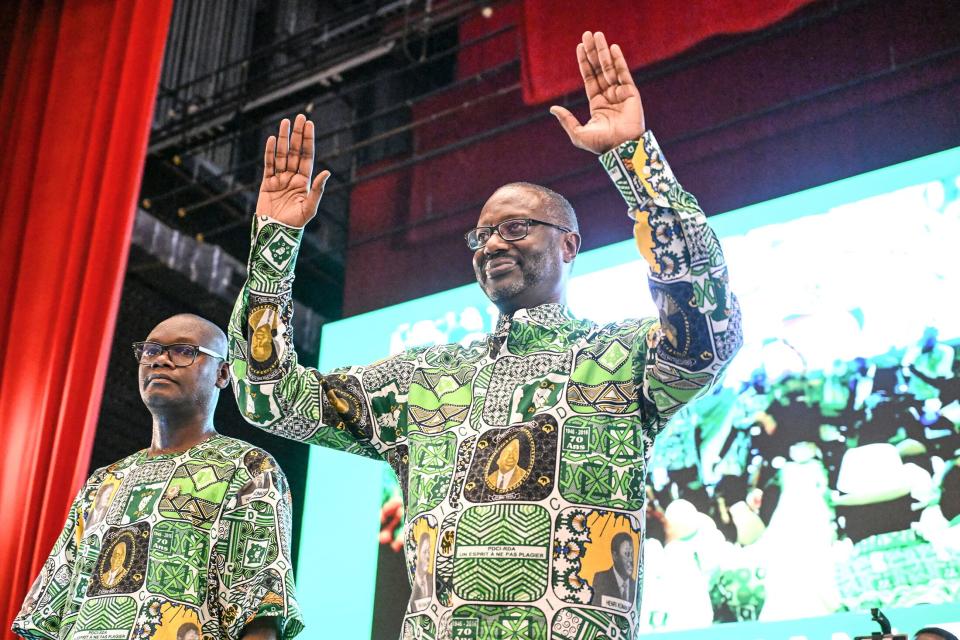Ex-Credit Suisse CEO Thiam Bids for Chance to Lead Ivory Coast
(Bloomberg) -- Tidjane Thiam’s bid to lead Ivory Coast’s opposition in presidential elections scheduled for 2025 is facing a critical test.
Most Read from Bloomberg
S&P 500 Trades Within a Whisker of All-Time High: Markets Wrap
Apple to Fight Watch Ban in Court After White House Declines to Act
Goldman’s Painful 2023 Lesson on China Forces Rethink of Emerging Markets
Students Fighting Antisemitism Use Legal Tool That Tests Power at US Colleges
The former Credit Suisse chief is vying to head the Democratic Party of Ivory Coast, which ruled the West African nation for decades after independence in 1960 but has been out of power since 1999.
If he succeeds, the 61-year-old banker has a good chance of being its candidate in the 2025 polls. But first he must secure support from a majority of PDCI supporters at the party’s congress on Friday.
“We have been in opposition for 25 years,” Kouame Yao, a civil servant, said by phone from the commercial capital, Abidjan. “PDCI needs a shakeup. Thiam has the qualities to revive and reinforce the party.”
Ivory Coast, the world’s top producer of cocoa, has endured two civil wars since the PDCI left power. But more recently it’s emerged as an African economic success story, averaging almost 6% growth in gross domestic product following the restoration of peace in 2011.
Even so, while living standards have improved, almost 40% of the population of 28 million live in poverty, according to the World Bank.
“We face crucial challenges that need leadership,” Thiam told supporters in Yamoussoukro as he launched his campaign on Dec. 9. “We will have to work for a peaceful, prosperous Ivory Coast.”
Originally scheduled for Dec. 16, the party meeting was postponed at the last minute following a court order citing irregularities during the campaign to replace the party’s long-term leader Henri Konan Bédié, who passed away earlier this year.
The results are expected by the end of the conference.
Thiam, who left Ivory Coast following a 1999 coup, is facing party veteran Jean-Marc Yace, the current mayor of Abidjan’s Cocody neighborhood, a PDCI stronghold.
Three other candidates dropped out of the race ahead of the vote. One of them, businessman Noel Akossi Bendjo, threw his support behind Thiam.
While Yace knows the field, having remained in Ivory Coast as Thiam pursued a career abroad, the former banker is rooted in central Ivory Coast in the ethnic Baoule community where PDCI has traditionally built its base, said Ousmane Zina, a professor of political science at the Alassane Ouattara University.
“Never underestimate the geopolitics of ethnics within the PDCI,” Zina said by phone from the northern city of Bouake. “Thiam can trace his lineage back to Ivory Coast’s first president, the party’s founding father.”
Thiam’s mother was a niece of Felix Houphouet-Boigny, the country’s first president after independence.
For his own part, Thiam has highlighted his leadership skills in posts at Aviva Plc, Prudential Plc and at Credit Suisse, where he became the first Black executive to lead a European bank.
“In all the structures I’ve managed, I’ve always believed in decentralization,” Thiam said in Yamoussoukro on Dec. 9. “Giving autonomy and power to the grassroots is the condition for success.”
Thiam left the Swiss lender following an espionage scandal in 2020.
Attempts by critics to discredit him have accused Thiam of being estranged from his native Ivory Coast. Thiam holds both French and Ivorian citizenship. He would have to give up the former if he runs for president, something he has said he’s prepared to do.
He’s also decisively younger than other political leaders. Incumbent President Alassane Ouattara will turn 83 in 2025, should he decide to seek a fourth term.
The two men have similar trajectories. Ouattara moved from a career in international banking at the International Monetary Fund to politics while Thiam has floated between the private sector and public service.
He served in Bédié’s administration between 1994 and 1999, leading the National Bureau for Technical Studies and Development and also becoming Minister of Planning and Development.
Thiam appeals to an electorate keen for a “renewal of political leadership,” according to Severin Kouame, a sociology professor at the University of Bouaké.
“The political field’s evolving. Building voter support around a single leadership figure no longer works,” Kouame said by phone from Yamoussoukro. “Many young Ivorians have no relation to the old political guard or their struggle.”
--With assistance from Arijit Ghosh.
Most Read from Bloomberg Businessweek
What Dermatologists Really Think About Those Anti-Aging Products
What the Oldest Lab Rodents Are Teaching Humans About Staying Young
©2023 Bloomberg L.P.

 Yahoo News
Yahoo News 


